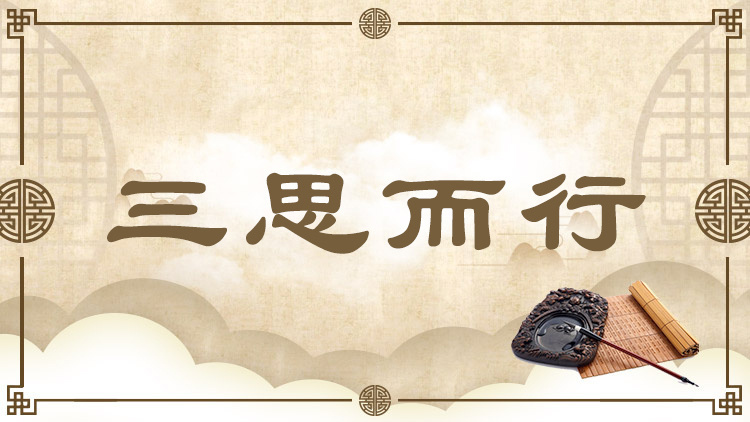三思而行
Think Thrice Before Acting

原指经过三次思考以后再去施行。是一种过于谨慎的态度。适度的思考是正当言行的前提,但如果思虑过于谨慎,则容易心生顾虑、犹豫,使对私利的关切影响对道义的遵守。《论语》记述鲁大夫季文子“三思而后行”,孔子认为,季文子思考两次即可,不必三思。后人在使用“三思而行”一词时,常淡化其过度谨慎之义,仅用以劝诫谨慎行事,强调在言语行事之前应周详地思考,从而做出符合日用伦常之道的选择。
Originally the term referred to taking action only after having reflected thrice. This is a kind of attitude handling things too cautiously. An appropriate measure of reflection is a prerequisite for proper speech and action, but if one becomes too cautious, then hesitation and doubt easily arise in the mind, affecting the observance of morality in the face of personal gain. "The Analects" records that Ji Wenzi, a senior official of the State of Lu, "acted having reflected thrice." Confucius thought that it would suffice if Ji reflected twice and that there was no need to reflect three times. When people later used the expression "thinking thrice before acting," they weakened the meaning of being too cautious, and just used it to urge caution when acting. They stressed that one should carefully reflect before speaking or acting so as to be in conformity with accepted moral standards.
引例 Citation:
◎季文子三思而后行。子闻之,曰:“再,斯可矣。”(《论语·公冶长》)
季文子三思之后才去行事。孔子听闻后说:“思考两次就可以了。”
Ji Wenzi acted after having reflected thrice. When Confucius heard it, he remarked, "Twice is sufficient." (The Analects)
推荐:教育部 国家语委
供稿:北京外国语大学 外语教学与研究出版社
责任编辑:钱耐安





